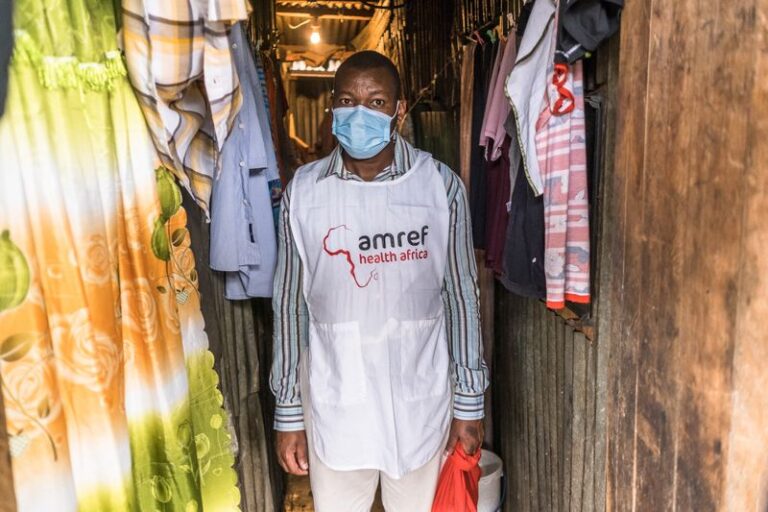Fundraising appeals led by those they intend to help see greater response

Fundraising appeals led by the people they intend to help can raise more money and be more effective than those created by the charity itself, research by the University of East Anglia (UEA) and University of the Arts London (UAL) has found.
In partnership with Amref Health Africa, the ‘Who Owns the Story?’ study explored how UK audiences respond financially and emotionally to stories of poverty developed and told directly by the image ‘subject’ in their own words, as opposed to fundraising materials designed by the charity.
The study involved two appeal packs, which went out to about 1800 people on Amref UK’s supporter database.
Advertisement
The first pack was created by Patrick Malachi, a community health worker in Nairobi, Kenya, who controlled all editorial decisions, took, and selected the images, and told the story in his own words, while the second was created by Amref with the help of a professional photographer and told in the voice of the INGO.
Patrick’s pack raised more money than the one created by UK-based fundraisers, with an average gift of £76.23 compared to £55.50 for the Amref created pack. It also raised 38% more compared to previous appeals.
A questionnaire was sent to all supporters who contributed to Patrick’s pack with a thank you letter from Amref, with an 8% response rate. Responses showed:
- 80% of respondents interpreted the appeal as someone who is being helped by Amref but who is also helping themselves.
- 83% of respondents had an emotional connection with the story.
- 31% believed the appeal was different to other appeals they have seen.
- Respondents valued Patrick telling the story using his own words and images. This highlighted that community members are able to make their own decisions for their own communities.
- Respondents actively recognised that this leaflet was attempting to overturn some stereotypes or savourist narratives, and this made them feel more inclined to donate.
In addition, the appeal also resulted in the participants feeling good about what outsiders hear about their own community, with Patrick saying: “The best thing is that you are talking directly to the real people, they have the best knowledge, the true picture of what they are saying.
Rachel Erskine, Communications Manager at Amref Health Africa UK, said:
“Amref has made a public commitment to ethical storytelling and representation in fundraising and communications. In practice, this means – among other things – creating opportunities for the people we support to tell their own stories directly to the UK public.
“Partnering with UEA and UAL on ‘Who Owns the Story?’ was a way for us to take that commitment to the next level and really put our money where our morals are by testing the widely-held assumption that differently-told stories won’t move supporters to take action.”
David Girling, from UEA’s School of International Development, who worked with Jess Crombie from UAL’s London College of Communication on the research, said:
“This research proves without doubt that it is possible to enable participant-led choices regarding storytelling, and still raise as much money as if you had created the fundraising materials yourself. It challenges the dominant sector opinion that in order to raise funds, stories must be selected and created by professional fundraisers. We hope that the project will inspire other organisations to work in partnership with the people whose stories they share.”
The research was supported by funding from the UEA Quality Related Global Challenges Research Fund and UAL Research Fund.
![]()



